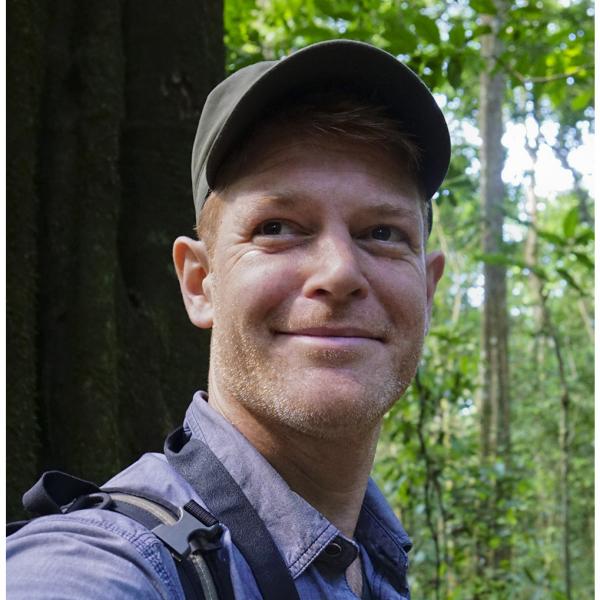Dr Stuart Campbell
Dr Stuart Campbell joined the University of Sheffield as a P3 Research Fellow before obtaining a NERC Independent Research Fellowship. He started his lab in 2019 in the School of Biosciences, and he is part of the PPS and EEB research clusters.

What is your research background and what are your current research interests?
I’m an ecologist and evolutionary biologist in the School of Biosciences, and I am fascinated by the incredibly diverse interactions between plants and insects. I am particularly interested in how these interactions are mediated by a plant’s naturally-produced metabolites – a field of study known as chemical ecology. I started my research journey studying forest insects, then completed my PhD at Cornell University, working on the evolutionary origins of plant defence against herbivores. Before moving to Sheffield, I did postdoctoral research at the University of Toronto, where I studied how plants adapt to new environments. Some of my lab’s current research is focussed on understanding how plants defend themselves against pests while also managing to be attractive to pollinating insects. This is a difficult balancing act for many plant species, since their defensive metabolites deter feeding by leaf and flower feeding insects – but can also be repellent to beneficial insects like bees. By investigating how plants accomplish this, we hope to better understand the immense evolutionary diversity of plants – we also hope to uncover new ways of managing pests and pollinators. We’re also very interested in how anthropogenic stress influences the diversity of insects, plants, and their interactions. My lab group of amazing ECRs uses a lot of different approaches, including ‘muddy boots’ field work, behavioral studies, comparative glasshouse experiments, and a range of ‘omics technologies, particularly metabolomics.
Are there any particular projects or outputs of yours that you are particularly proud of or excited about? Can you provide a reference or a link?
Currently, I’m especially excited about some projects we have on insect-plant interactions in cities. Insects are declining globally, and the loss of insect diversity has profound consequences for ecosystem function. One area of particular concern is the decline in pollinators that are needed for reproduction of wild plants and crops. Some of this research is focused on the effects of common urban pollutants on insects and insect-plant interactions, including a collaboration with researchers here at Sheffield and at Cranfield University, based in part on some of my prior research. I also collaborate with others in the ISF and Biosciences on a couple of different projects looking at insect diversity and function in different urban greenspaces (e.g., allotments).
What do you think are the most high-potential or important future directions for the type of research that you do?
At the moment, we are investigating how different environmental stresses indirectly affect pollinators by changing plant metabolism, and this work has a number of interesting implications we’re planning on exploring further: First, we’d like to understand the factors that drive the evolution of plant reproductive variation, and find those species which have adapted to mitigate the effects of stress by tweaking their pollination strategy – we’re hoping this might help us improve crop pollination. Second, we’re planning to study the environmental conditions which support insects by supporting plants, and we hope to test how we can slow or reverse pollinating insect declines.
What are your links to the Institute for Sustainable Food?
I started at the University as an independent research fellow in the Plant Production and Protection Centre, which then became an integral component of the ISF’s interdisciplinary research. I now collaborate with quite a few other ISF members (e.g., Edmondson, Croft, Ton, Hipperson) on different projects linked with crop production and protection locally, and in Uganda. Although much of my research is basic ecology and evolutionary biology, I’m a strong believer in the power of basic research to generate new translational ideas. Chemical ecology is a fantastic field for this, and has a long history of generating new techniques for natural insect management by revealing the intricacies of plant defence and plant-insect interactions.
Can you tell us a fun fact about you?
I started university studying English Literature before making the switch to science.


